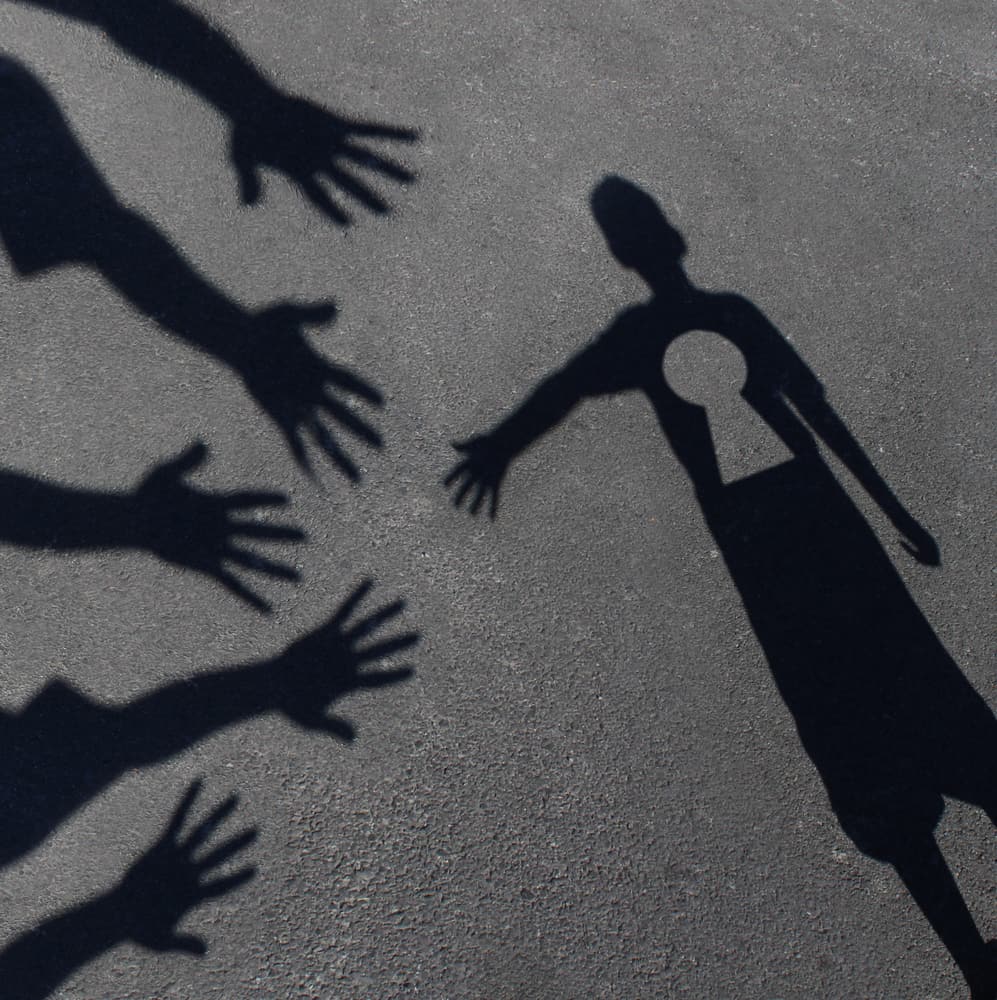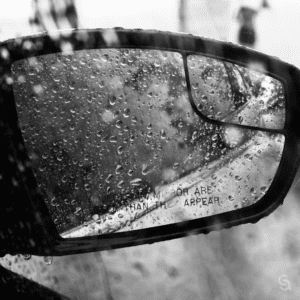
In the 1980s we started a ministry to educate the church about the deadly HIV virus. We provided care and housing for people with HIV and AIDS. We reached out to people where they were, sharing Jesus’ love with people we sometimes called the “unwanted harvest.” There are so many people who are hungry to hear about Christ’s love for them. They’re waiting for us to tell them about—and show them—that love.
God did great things for us and through us in this ministry. But first he had to get a hold of me and work with me. I come from a very legalistic Pentecostal background. We didn’t think anybody was saved but us—and then we weren’t even sure about us.
Up to that point I had been involved in youth and education ministries—this was not the ministry I would have picked on my own. If I had had even a clue when we first started of where this ministry was going to go, I would have run like a scalded dog. But God gives us bits in pieces—here a little, there a little. He gives us grace for what’s going to happen, and the compassion to overcome anything.
God used a young man in our home and our heart—a young man by the name of Kevin. Kevin was 20 years old. Kevin had been rowdy. He’d gotten into drugs. He’d done a little bit of everything. But he decided that he was going to get his life straightened out, so he joined the Army.
Two weeks after taking his blood test he got a call telling him to come back in, that he needed another blood test. They told him he was HIV-positive. How can that be? he wondered. I’m just 20 years old?
A blood test showed that Kevin had full-blown AIDS. That means he was infected at 14 or 15 years old.
Kevin was driving the 90 miles back to his hometown of Port Arthur, Texas, and thinking, How will I tell my mom and dad? How will I tell the guys I run with? How will I tell them that I have this terrible disease?
Kevin decided the best thing for him to do would be to kill himself. So on the drive home he planned his suicide. He would go into his father’s bedroom and get the pistol. Then, because he was a considerate young man, he would put a black garbage bag over his head and lie down in the bathtub so there wouldn’t be a big mess to clean up. Then he’d shoot himself in the head.
That was his plan. When he walked in the door, the phone was ringing. He ignored the phone and went and got the gun. He got the bag. The phone was still ringing. He picked it up and it was Sharon, a godly mother who lived three doors down the street.
She said, “Kevin, I don’t know what’s wrong, but for two-and-a-half hours I’ve been in prayer for you.” She came to the house, put her arms around Kevin, and asked, “What can I do?”
Kevin thought he was going to die very soon so he said, “I don’t know. Will you take me to your church?”
Sharon said, “Let’s go right now.”
They went and met with the pastor. But when the pastor realized this was about AIDS he stopped them mid-conversation. “What are you thinking, Sharon? You can’t bring this kid into our church. What would people say about us?”
“You can’t bring this kid into our church. What would people say about us?”
So Sharon took Kevin to her daughter’s church. When the pastor there, who had said he had all afternoon free, found out what he was dealing with, he suddenly remembered he had an appointment.
So Sharon brought Kevin to the midweek Wednesday night service at our church in Houston. They walked in late for the service, and the pastor, being sensitive to God, said, “I can finish this Bible study anytime. Someone here is hungry to know Jesus.” Five minutes later Kevin was at the altar, giving his heart to God
He came to us and said, “This is my story. What do I do?
I told him, “Kevin, you come spend the weekend with my family, and will work out a plan.”
We had been youth pastors, so our house was always open. Kids called it the Highfield Hilton. We usually had so many kids around we had to count heads in the morning before we scrambled eggs. We had recently decided to clear out the house—down to just my wife and me and our two boys. We thought that was the way we wanted it for a while.
But that Friday night I took this little 20-year-old kid, who looked about 14, into our living room. He sat across from my wife, and she looked into his sad brown eyes and then looked at me and said, “Don’t do this to me.” Kevin stayed with us for the next four-and-a-half years.
Kevin not only brought AIDS into our church; he also brought it into our home. Got allowed that so that we could see the pain and the hurt and the things that people walk through.
Kevin was part of the unwanted harvest. He was hungry to know Jesus, but the church kept turning him away. Now Kevin wanted to live for God as hard as he ever lived for Satan. He wanted to teach Sunday school with my wife and her class of 8-year-olds—so we educated the church, and he did. He wanted to be a sound man, operating the church’s audio equipment, and he did. He bragged that he had more keys to the church and I did.
So many people wait in the unwanted harvest, and in our selected evangelism we’ve passed over them. It’s time that we reach out to whoever is in need, whoever is hurting, and love them the way Jesus loves them.
I wish I could tell you that immediately—boom! —I was filled with godly compassion. I believe it can happen, but it didn’t happen to me. Remember, I was a legalistic Pentecostal. God had to deal with me little by little.
I began working as a chaplain of the AIDS unit of Houston’s Park Plaza Hospital. One day I was praying with a minister who was dying of AIDS, whose life has gotten shipwrecked. As I left his room, a male nurse stopped me in the hall.
“We’re not used to having Christians come up here,” he told me. “Especially not preachers. But when you go around to the rooms and you pray with people, laugh with, and hug them, when you come by the nurses’ station and pray for us, I just want you to know it makes a difference.” Then he reached up and said, “I just think you’re a sweetie,” and kissed me on the cheek.
“We’re not used to having Christians come up here. Especially not preachers. But I just want you to know it makes a difference.”
I thought, My God, what are people going to think? All the way down to my car I argued with God. “Lord, surely somebody else could do this.” And the Lord gave me Jude 22-23: “Keep yourselves in the love of God, looking for the mercy of our Lord Jesus Christ unto eternal life. And some have compassion, making a difference.”
The next day I took a group to a Christian men’s conference over in Southern Louisiana. This little Cajun man walked up to me and said, “Sir, I don’t know you, but the Lord he’s done told me to tell you four or three things.”
So I said, “Uh, okay.”
He said, “First of all, in 2 Peter it says to greet your brother with a holy kiss.” Then he kissed me on that same cheek and said, “Don’t forget, they’re going to be your brothers, too.” And he walked away.
God was working on me, whittling away at the issues I still had that kept me from sharing Christ’s compassion with those brothers of the unwanted harvest.
Now, I thought I had arrived and had dealt with all these issues, and I thought I was doing pretty well. A few months later I was driving through Montrose, Houston’s gay neighborhood. I was driving by one of the largest bars in the community and on the parking lot, the Houston chapter of Queer Nation, a very radical group, was having a car wash. They were dressed in mini-shorts and having a great time washing cars, and that old judgmental spirit rose up in me. I thought, My God in heaven, have a no shame?
Then the Lord spoke to me as clearly as he has ever spoken to me and said, “Your car is dirty.”
“But God! Surely you don’t want them washing my car!”
But I know when I’ve heard from God, so I pulled in, praying, “God, don’t let anybody that knows me see me here.” And these guys started washing my car. Everything was fine until they got to the bumper sticker for KSBJ, the local Christian radio station.
One guy said, “Is this your car?”
“Yeah, this is my car.”
“Do you listen to that station?”
I said, “Well, yeah, I drive around quite a bit for work, and I do listen to it.”
“What do you do?” he asked.
Now I want to be politically correct and not cause a scene. I wanted to tell him I was the chaplain of an AIDS unit. We had opened our first home, so I was an “AIDS care provider”—that would sound good. But when I opened my mouth what came out was, “I’m a Pentecostal preacher.” Where did that come from?
The four young men backed away from my car as if it was loaded with dynamite. I could see the fear and anger in their eyes.
One of the guys said, “We’re used to you guys throwing stones at us.”
I said, “We’ve been hit by you guys a few times, too, you know, but I think we can get to some common ground.” Then I got to share just a little bit of Jesus.
Three weeks later the president of this radical group showed up in the AIDS ward at the hospital. His back was to me when I walked in and the nurse said, “Oh, the chaplain’s here.”
But the guy didn’t even look up. He just said, “I don’t want to see any blanket-blank chaplain.” Then he turned around and saw me. “Excuse me,” he said. “I’ll talk to him.” He had been at the car wash. Over the next two weeks we got to talk and share. Without judging him, I tried to share Jesus’ love.
I found out why I had said I was a Pentecostal preacher. Brian had been raised as a Pentecostal in Mississippi. Brian’s father was a head of the deacon board. He was also the Sunday school superintendent. But he had also been Brian’s sexual abuser, from the time Brian was 4 until he was 14. There are secrets, dark places and hidden things in the church that we’ve got to deal with.
By the time Brian was ready to go home from the hospital, we had become friends. A few weeks later he gave his heart to God. I baptized him in his bathtub.
He called me one night and said, “I want you to be the first to know: We’re having a news conference in the morning and I’m resigning from the presidency of this group. And since nobody else wants to do it, we’re closing it down.” That was not done with politics or with picketing; it was just compassion for hurting individuals.
As Dave Harwood says, we need to get out from behind stained-glass windows to touch stained lives. In the church we seem to think only of programs and how to bring people down to the altar. We get people to the sacred altar, let them pray a little bit, and we expect a sudden ding!—as if they’ve been in the spiritual microwave and now they’re seasoned, perfect saints.
The truth is we are crockpots. We are all slow cookers. It takes time for some of us. Some of us are wrapped up with a lot more mess.
Our ministry began with nothing but a dream. We didn’t know where we were going. We just saw needs and started to meeting them. We started with the care team ministry through our local church. We joined a secular AIDS agency and asked, “What can we do?”
We joined a buddy program. We took people meals. We took them to the doctor, and we just did practical evangelism. God began to bring families and individuals to us, so we started support groups. We saw there were indigent people on the streets without a place to live, so in 1992 we opened our first home for homeless AIDS victims. The next year we had to add another home. In 1994 we started buying six acres in Pasadena, Texas, where we opened a women and children’s home with six apartments so we could keep families and kids together. We joined with a wonderful foster-care agency called the Arrow Project and opened a teen house called Kevin’s Kottage, the children’s home, and an emergency shelter.
I wish I could tell you that Kevin is still with us and that he saw how far God led us, but we lost Kevin at 24 years old.
Kevin lost his battle with his illness, but his faith never wavered. Because somebody reached out to that child with compassion, that compassion was multiplied. When he was sick in the hospital, if you were a janitor or if you were a surgeon, when you walked into Kevin’s room he would minister to you. When he had a surgery, he brought the whole team in so he could pray with them.
He won many people to God. He sat with me as he was dying, and he planned his funeral so that it would be an evangelistic event. He wanted it at night so it would be convenient, and almost 800 people showed up. He wanted people to be saved—and they were saved. Kevin had prayed for his mom and dad, his sister and his brother. They didn’t know the Lord. Neither did the funeral director until that night. Or many others. But Kevin’s mom eventually became our church secretary and his dad became a deacon. His sister and his brother became Christian counselors.
You know who else was at Kevin’s funeral? The two pastors I told you about, who turned him away from their churches that first day. They were both at his funeral because in four years this young man—someone we had regarded as the unwanted harvest—had won so many people to their churches. Because God said, “Let him come unto me.”


